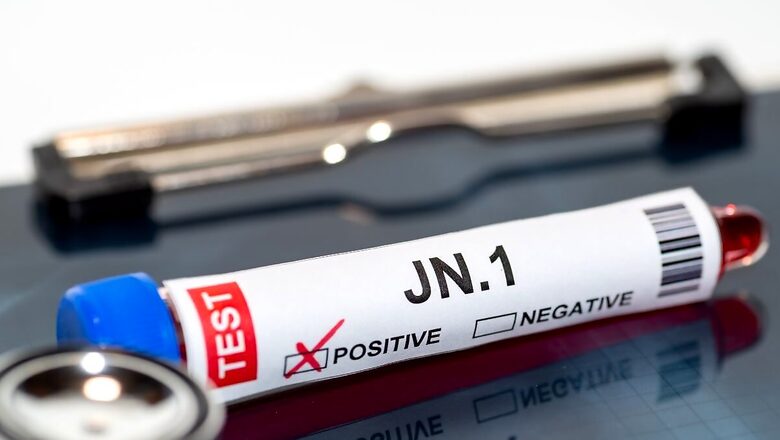
views
A growing Covid-19 variant, JN.1, has taken off this holiday season in several countries but there isn’t anything ‘alarming’ in India, co-chair at INSACOG’s advisory board, Dr Saumitra Das, told News18.com in an exclusive interaction.
Microbiologist Das, a professor at the Indian Institute of Science, said the government needs to bump up surveillance at airports and fix the system of Covid-19 testing, once again.
“There is nothing unusual in Covid-19 cases going up and nothing is alarming. The cases are mostly driven by the JN.1 variant which is a sub-lineage of BA2. 86 Omicron,” Das said.
Lineage JN.1 was first found in Luxembourg and as per the latest numbers, it has been spotted in more than 38 countries.
As it is Christmas and holiday time, the movement of international travellers goes up as an annual routine. This thus becomes the time when pathogens also cross borders and screening at airports becomes important.
India detected its first JN.1 case in Kerala’s Karakulam on December 8. The sample from a 79-year-old woman had tested positive in an RT-PCR test conducted on November 18, reported news agency PTI, adding that she had mild symptoms of influenza-like illnesses and had recovered from Covid-19. The Union Ministry of Health, on December 16, initiated preparedness measures after the case was identified in Kerala.
“We must notice that every new wave comes in the month of December or in winter, starting from the first wave to the Delta wave and then Omicron.”
Das said INSACOG has been monitoring the situation closely, including the prevalence of the JN.1 variant along with other variants.
“The government can increase surveillance at airports and put a system of Covid-19 testing in place across India which has been dismantled by many laboratories by now.”
Das advised that “we only need to be careful. The surge is small, the numbers are still very much in control”.
India in better situation due to high vaccination coverage
Das believes that India is in a safe space, considering the high coverage of Covid-19 vaccination.
“The situation two years ago was different from the situation now. Today, more than 90 per cent of our population is vaccinated. We have not seen an increase in hospitalisation and oxygen or ventilator requirements.”
He explained that JN.1 carries an additional spike mutation, L455S, and this mutation is suspected to have the potential to escape immunity.
“While this mutation has been known for evading immunity, it is not expected to cause severe illness,” Das said.
His main concern is not to alarm the public but to alert them. “There is a need to alert people that during the festive or holiday period, the exposure goes up. Those who are vulnerable or at risk, such as the elderly, must mask up and avoid unnecessary exposure.”


















Comments
0 comment